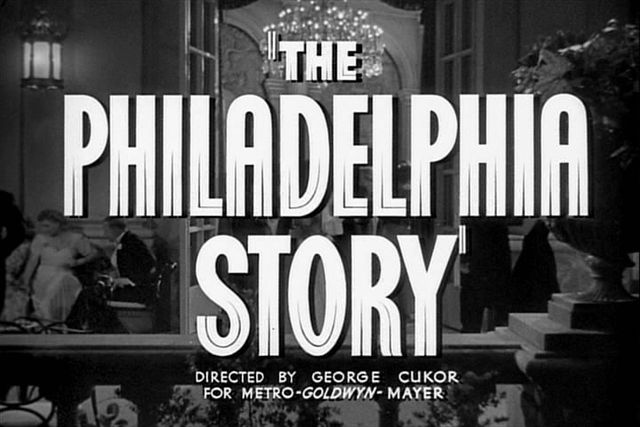Old Hollywood Films: Might Be Worth Your Watch
If you are a cinephile like me, you might find you have a unique relationship with movies. Some people have a strong genre, narrative or otherwise preferences— i.e., some moviegoers enjoy sci-fi films, while some would rather watch a drama. Some like earlier film, and some prefer more recent releases. Personally, I’m not particularly discriminatory towards either. However, I’ve developed a distinct appreciation for early film just within the last year or two. What I’ve discovered is that movies made in the early 1900s can still be relevant to our world in 2022, regardless of content and/or cinematographic accomplishment.
One film that continues to stand the test of time is the Hollywood rom-com “The Philadelphia Story” (Cukor, 1940). The narrative centers around wealthy bride-to-be Tracy Lord (Katharine Hepburn), who begins to question her proposed marriage as well as what she knows to be true of herself. This starts when her ex-husband C. K. Dexter Haven (Cary Grant) and journalist Macauley Conner (Jimmy Stewart) show up at her house unexpectedly to collaborate on a press release about her wedding. Naturally, the story takes a few twists and turns, and Tracy finds herself unable to fully commit to her upcoming nuptials—because of her dual attraction to both Dexter and Conner, as well as the development of her own agency.
Admittedly, “The Philadelphia Story” is not stylistically or formally unique, however, the dialogue, humor and certain aspects of the representational subject matter retain a level of significance. Firstly, it’s rare in early film— especially early Hollywood film— to have such an independent female character at the forefront. Tracy, as established from the get-go, is extremely strong-willed, opinionated, verbal and unashamed about her previous divorce— all of these qualities which defy cultural norms at the time and the standard image of what a woman should be. Towards the end of the film, Tracy isn’t punished, rather, she makes an educated choice about what she wants her future to look like, which is a relatively positive representation of femininity considering the time period.
In addition to its portrayal of an intelligent female protagonist, “The Philadelphia Story” delves into several topics with more depth. In fact, the film explores the concept of consent in its third act, when Conner is accused of sleeping with Tracy in a drunken state the night before her wedding. Conner explains he only kissed Tracy, that he knew very well they were both under the influence, and he rightfully refrained from any more advancements— as Conner aptly states it: “There are rules about that stuff!” Considering that “The Philadelphia Story” was made in 1940, this is quite a progressive statement.
To conclude, I highly recommend giving The Philadelphia Story a screening— not only is it comical, but it continues in its relevance to current discourse and it succeeds representationally where other films of its time do not. One item I have absorbed from taking film classes is that whatever your taste in film may be, it is important that you consider branching out. That old black and white movie might just surprise you.



